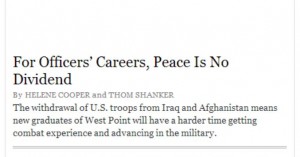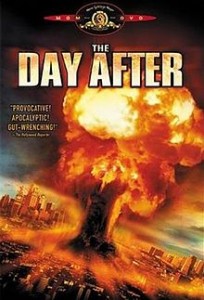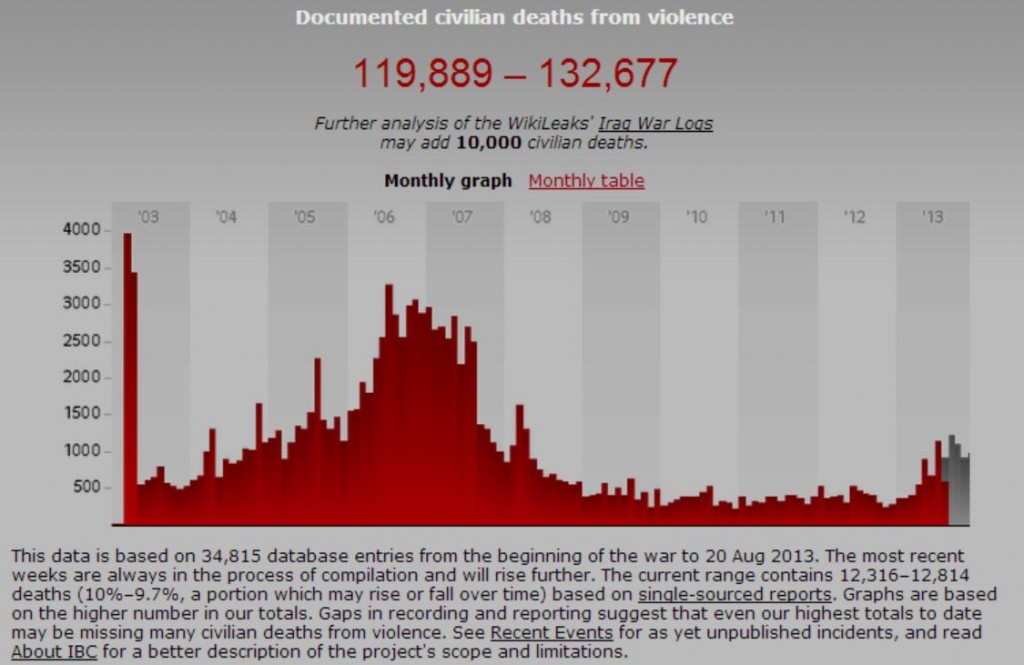Latest Catch-22 For US Military: Training Iraqi Troops Too Dangerous Due to Previous “Training”
The abject failure of US efforts to train troops in Iraq and Afghanistan has been one of my most frequent topics. Even though the US mission in Iraq has officially ended and the mission in Afghanistan is mired in a surreal form of purgatory as the government re-invents it vote auditing procedure and even the structure of its government, the US military just can’t kick its addiction to training and is now contemplating yet another attempt at training Iraqi troops.
The New York Times tries to come to the aid of the military this morning with a front page story dedicated to re-starting the training process. The problem though, is that as the Times dives into the idea, it becomes apparent that our previous failures in training may have made it too dangerous to start (and, of course, fail again, but the Times doesn’t go there) the process yet again. That danger even makes it into the headline: “US Sees Risks in Assisting a Compromised Iraqi Force“.
The story opens:
A classified military assessment of Iraq’s security forces concludes that many units are so deeply infiltrated by either Sunni extremist informants or Shiite personnel backed by Iran that any Americans assigned to advise Baghdad’s forces could face risks to their safety, according to United States officials.
The report concludes that only about half of Iraq’s operational units are capable enough for American commandos to advise them if the White House decides to help roll back the advances made by Sunni militants in northern and western Iraq over the past month.
Imagine that. Despite eight years of work and over $25 billion invested, two and a half years after we left Iraq only about half of Iraq’s units are even fit enough for the US to advise them in an effort to take on their latest existential threat.
But the real beauty in the current conundrum lies in who stepped up to fill the training gap when the US left:
Adding to the administration’s dilemma is the assessment’s conclusion that Iraqi forces loyal to Prime Minister Nuri Kamal al-Maliki are now heavily dependent on Shiite militias — many of which were trained in Iran — as well as on advisers from Iran’s paramilitary Quds Force.
Shiite militias fought American troops after the United States invaded Iraq and might again present a danger to American advisers. But without an American-led effort to rebuild Iraq’s security forces, there may be no hope of reducing the Iraqi government’s dependence on those Iranian-backed militias, officials caution.
So when we left, Maliki supplemented his military with the very Shiite militias that US forces had been fighting. At least one reason for Maliki’s move was that these militias knew how to fight and the troops the US trained were useless. Those militias have been trained by Iran. And as much as the US would love to “rebuild Iraq’s security forces” through yet another ride on the training carousel, that could well be too dangerous because many of the people we would then be training might remember that less than three years ago, the US trained their weapons on them while training other Iraqi troops to go after them. The Times article rightly recognizes this situation as ripe for a resurgence of green on blue insider killings if the US tried to train such forces. They quote Michael Barbero, who was in charge of training in Iraq from 2009 to 2011 (funny, once again, while discussing training failures, David Petraeus is never mentioned):
“The advisory mission has inherent risks, but they can be mitigated,” he added. “You can put security with them. You can be selective about where you put the advisers. We can apply the lessons learned from dealing with the insider threat in Afghanistan.”
Gosh. Our military just can’t stop looking at hopeless situations and saying that they are at the turning point where they will get better. Despite all those previous failures, this time, by golly, we’ll get it right:
And General Dempsey also emphasized any American military involvement in Iraq would be different than in the past.
You see, this time we’ll call our guys advisers instead of trainers. That should make all the difference. Even if those we are advising know that we were trying to kill them very recently…



